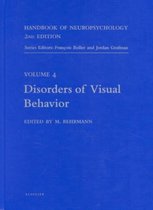The Representational Fallacy in Neuroscience and Psychology A Critical Analysis
Afbeeldingen
Artikel vergelijken
- Engels
- Hardcover
- 9783031575587
- 15 juni 2024
- 82 pagina's
Samenvatting
This book traces the history and coherence of the use of the word ‘representations’ from its origins, particularly in the description of artefacts, to its use in the description of so-called mental and neural representations in the mind and in the brain.
This book traces the history and coherence of the use of the word ‘representations’ from its origins, particularly in the description of artefacts, to its use in the description of so-called mental and neural representations in the mind and in the brain. It is shown that there are no good reasons for this transition. Experimental psychology is confused in taking what one perceives to be a mental representation. Neuroscientists need to avoid moving readily between the notions of neural and mental representations; indeed even the logic of taking a pattern of neural activity as standing for some sensibly experienced characteristic requires elucidation. It is concluded that the word ‘representation’ when used in experimental psychology and cognitive neuroscience is confounding.
Maxwell R Bennett is Emeritus Professor of Neuroscience and held the first University Chair for ‘research recognized internationally to be of exceptional distinction’ at the University of Sydney. This research is on the biophysics and neurobiology of synapses. He is the author and c0-author of over 300 papers as well as of thirteen books on the neuroscience, history and philosophy of this subject. In the last twenty years he founded The Brain and Mind Research Institute, as well as The Mind & Neuroscience Thompson Institute, each concerned with ameliorating mental illness.
Peter Hacker is Emeritus Fellow of St John's College, Oxford and holds an Honorary Professorship at University College, London at the Institute of Neurology. He is a leading authority on the philosophy of Wittgenstein, has written extensively on philosophy and neuroscience, philosophy of language, philosophy of mind, and the philosophy of human nature. He is author and co-author of more than twenty-five books.
This book traces the history and coherence of the use of the word ‘representations’ from its origins, particularly in the description of artefacts, to its use in the description of so-called mental and neural representations in the mind and in the brain. It is shown that there are no good reasons for this transition. Experimental psychology is confused in taking what one perceives to be a mental representation. Neuroscientists need to avoid moving readily between the notions of neural and mental representations; indeed even the logic of taking a pattern of neural activity as standing for some sensibly experienced characteristic requires elucidation. It is concluded that the word ‘representation’ when used in experimental psychology and cognitive neuroscience is confounding.
Productspecificaties
Inhoud
- Taal
- en
- Bindwijze
- Hardcover
- Oorspronkelijke releasedatum
- 15 juni 2024
- Aantal pagina's
- 82
Betrokkenen
- Hoofdauteur
- Maxwell R Bennett
- Hoofduitgeverij
- Palgrave Macmillan
Overige kenmerken
- Product breedte
- 148 mm
- Product lengte
- 210 mm
- Verpakking breedte
- 148 mm
- Verpakking lengte
- 210 mm
EAN
- EAN
- 9783031575587
Je vindt dit artikel in
- Categorieën
- Taal
- Engels
- Boek, ebook of luisterboek?
- Boek
- Beschikbaarheid
- Te reserveren
- Studieboek of algemeen
- Studieboeken
Kies gewenste uitvoering
Prijsinformatie en bestellen
De prijs van dit product is 39 euro en 99 cent.- Prijs inclusief verzendkosten, verstuurd door bol
- Ophalen bij een bol afhaalpunt mogelijk
- 30 dagen bedenktijd en gratis retourneren
- Dag en nacht klantenservice
Rapporteer dit artikel
Je wilt melding doen van illegale inhoud over dit artikel:
- Ik wil melding doen als klant
- Ik wil melding doen als autoriteit of trusted flagger
- Ik wil melding doen als partner
- Ik wil melding doen als merkhouder
Geen klant, autoriteit, trusted flagger, merkhouder of partner? Gebruik dan onderstaande link om melding te doen.








